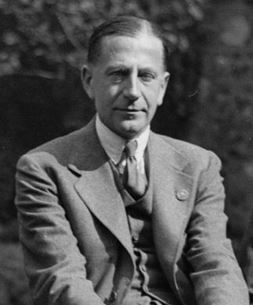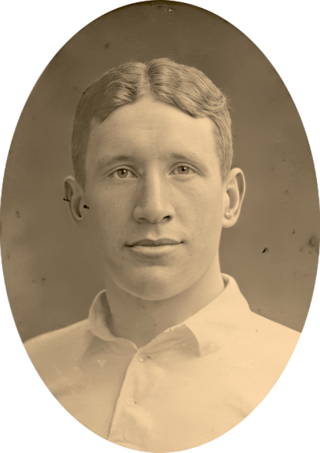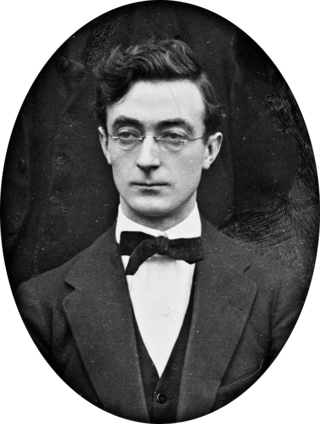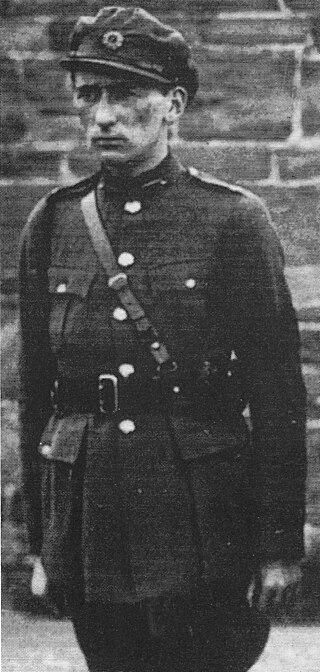
The National Centre Party, initially known as the National Farmers and Ratepayers League, was a short-lived political party in the Irish Free State. It was founded on 15 September 1932 in the Mansion House, Dublin, with the support of several sitting TDs, including the three Farmers' Party members and thirteen Independents, all of whom feared for their political future if they did not coordinate in a common organisation. Prominent among the latter were party leader Frank MacDermot, a TD for Roscommon since the general election of February 1932, and James Dillon, a TD for Donegal, who was the son of John Dillon, the last leader of the Irish Parliamentary Party.

The 1923 Irish general election to elect the 4th Dáil was held on Monday, 27 August, following the dissolution of the Third Dáil on 9 August 1923. It was the first general election held since the establishment of the Irish Free State on 6 December 1922. The election was held shortly after the end of the Irish Civil War in May 1923. Many of the Republican TDs, who represented the losing anti-Treaty side, were still imprisoned during and after the election and had committed to not participating in the Dáil if elected.

Joseph McGrath was an Irish politician and businessman. He was a Sinn Féin and later a Cumann na nGaedheal Teachta Dála (TD) for various constituencies; Dublin St James's (1918–1921), Dublin North West (1921–1923) and Mayo North (1923–1924), and developed widespread business interests.

Dublin South was a parliamentary constituency represented in Dáil Éireann, the lower house of the Irish parliament or Oireachtas, from 1981 to 2016 representing an area in the south of County Dublin. A previous constituency of the same name existed in Dublin City from 1921 to 1948. The method of election was proportional representation by means of the single transferable vote (PR-STV).

The Farmers' Party or Farmers' Union was an agrarian political party in the Irish Free State between 1922 and 1932. It was concerned almost exclusively with the interests of the agricultural community, and never sought to widen its scope beyond the countryside.
The National Progressive Democrats was a small socialist political party in the Republic of Ireland, active between 1958 and 1963.

Clann Éireann, also known as the People's Party, was a minor republican political party in the Irish Free State. The party was founded on 25 January 1926 as a result of a split from the ruling Cumann na nGaedheal party, to protest against the Boundary Commission report, which permanently demarcated the border between the Free State and Northern Ireland. Clann Éireann was the leading representative of constitutional republicanism in Dáil Éireann until the success of Fianna Fáil at the June 1927 general election.

The National League was a political party in Ireland. It was founded in 1926 by William Redmond and Thomas O'Donnell in support of the Anglo-Irish Treaty, a close relationship with the United Kingdom, continued membership of the British Commonwealth and conservative fiscal policy.
Dublin County was a parliamentary constituency represented in Dáil Éireann, the lower house of the Irish parliament or Oireachtas from 1921 to 1969. The method of election was proportional representation by means of the single transferable vote (PR-STV).
Cork Borough was a parliamentary constituency represented in Dáil Éireann, the lower house of the Irish parliament or Oireachtas from 1921 to 1969, and as Cork City from 1977 to 1981. The method of election was proportional representation by means of the single transferable vote (PR-STV).
Séan Francis Gibbons was an Irish politician who sat as Cumann na nGaedheal Teachta Dála (TD) in the 1920s and as a Fianna Fáil TD in the 1930s. He later became a Senator, and was Cathaoirleach (chairperson) of the Seanad for five years.

The September 1927 Irish general election to the 6th Dáil was held on Thursday, 15 September, following the dissolution of the 5th Dáil on 25 August by Governor-General Tim Healy on the request of President of the Executive Council W. T. Cosgrave.
Mayo North was a parliamentary constituency represented in Dáil Éireann, the lower house of the Irish parliament or Oireachtas from 1923 to 1969. The method of election was proportional representation by means of the single transferable vote (PR-STV).

Alexander McCabe was an Irish Sinn Féin politician.

Seán Milroy was an Irish revolutionary and politician, who took part in the 1916 Easter Rising and served in the Second Dáil during the War of Independence and afterwards in the Seanad of the Irish Free State.
John Horgan was an Irish politician from Cork who had a very brief career as a parliamentary representative in the Irish Free State. He served for three months as a Teachta Dála (TD) for the National League Party, a short-lived party which advocated closer ties with the United Kingdom. He was a member of the Cork Corporation, served a term as Lord Mayor of Cork.

Seán McGarry was a 20th-century Irish nationalist and politician. A longtime senior member of the Irish Republican Brotherhood (IRB), he served as its president from May 1917 until May 1918 when he was one of a number of nationalist leaders arrested for his alleged involvement in the so-called German Plot.

An election for 19 of the 60 seats in Seanad Éireann, the Senate of the Irish Free State, was held on 17 September 1925. The election was by single transferable vote, with the entire state forming a single 19-seat electoral district. There were 76 candidates on the ballot paper, whom voters ranked by preference. Of the two main political parties, the larger did not formally endorse any candidates, while the other boycotted the election. Voter turnout was low and the outcome was considered unsatisfactory. Subsequently, senators were selected by the Oireachtas rather than the electorate.
The Business and Professional Group was a minor political party in the Irish Free State that existed between 1922 and 1923. It largely comprised ex-Unionist businessmen and professionals.

The Army Mutiny was an Irish Army crisis in March 1924 provoked by a proposed reduction in army numbers in the immediate post-Civil War period. A second grievance concerned the handling of the Northern Boundary problem. As the prelude to a coup d'état, the decisions made by influential politicians and soldiers at the time have continuing significance for the Government of Ireland.














